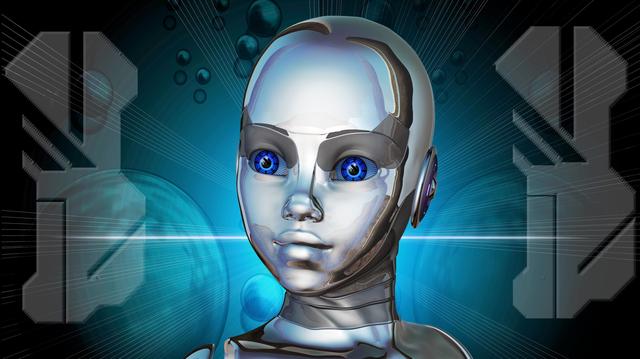By akademiotoelektronik, 28/03/2022
Why does artificial intelligence scare the French so much?
According to a study by OpinionWay for VMWare, many aspects of artificial intelligence worry the French. Are humans in such danger for letting machines control their lives?At 7:00 a.m., the voice assistant wakes up Michel, reminding him that this morning he has an appointment with his ophthalmologist at 8:30 a.m. The robot offers him to order a car without driver, because it is raining and taking his scooter would not be safe. Michel only has to say "OK" to automatically start the process and go quietly to take a shower and enjoy a coffee. This scenario is no longer science fiction and if it seems to make life easier, it already worries the French as revealed by an OpinionWay study* carried out for VMWare. Our fellow citizens are afraid of revealing too much about their private life by providing their personal data and they fear that thanks to artificial intelligence, machines will take control of their existence.
If the French readily admit that certain sectors, such as the automobile (37%), finance (26%) or health (24%), will become more efficient thanks to new technologies, they are not inclined to provide their data to improve artificial intelligence algorithms. They barely agree to reveal their professional background (47%) or their consumption habits (49%). But they are mostly against sharing more sensitive information such as financial data (70%), their phone history (68%), family history (66%), Internet search history (66% ) or medical data (63%). They are even very divided on geolocation data with 54% of people who are not in favor of it.
The human is afraid of it, not his digital avatar
“These answers raise questions all the more so since all those who use computer or digital devices leave their data to improve services by personalizing them”, raises Sylvain Cazard, general manager of VMWare France. These realities can be seen with social networks, with more and more connected objects, with financial services which advise on investments to be made and simulate financing, and also with GPS which know where we are, where we come from and where we are going.

For Jean-Pierre Malle, datascientist and founder of the M8 agency, this paradox is very human. "Our digital avatar manages them rather well, but we are afraid of them. These technologies generate suspicion and fears before entering our daily lives and if we talk about them with learned words", estimates this specialist who does not observes no chronic technophobia among the French. He sees it rather as a mixture of caution in the face of what we do not know: "As soon as they enter our daily lives, they take on meaning and are adopted without difficulty by all audiences".
A problem of semantics
Another reason may explain the fears of the French: the meaning of words. "We may have been wrong to keep the word intelligence without really translating it. Among the Anglo-Saxons it means intelligence or information, while among the Latins it refers directly to the intellect", indicates Jean-Pierre Malle.
This paradox is strongest with the autonomous car. While the latest generation vehicles that already manage braking, distances between vehicles and road exits and guide the driver to his destination, people interviewed by OpinionWay do not trust a fully autonomous car. 59% do not have confidence in the decisions they could make, 46% fear losing control of them and 45% fear that they will cause an accident. Fear of hackers only comes last. Overall, 56% are not ready to use a self-driving car.
For Éric Gourier, Business Solution Strategist at VMware France, intelligence generates sometimes irrational reactions. "Users use chatbots and intelligent systems every day without really realizing it, but the fantasy is powerful for this technology. Perhaps it comes from science fiction that presents them as a danger to humans In this area fantasy is powerful. The Terminator myth is very present.
AI, danger or savior of humanity?
But these fears are also shared by specialists in new technologies and science. Elon Musk, boss of Tesla and Space X, Bill Gates, founder of Microsoft, and American astrophysicist Stephen Hawking have repeatedly issued warnings about the dangers posed by AI, even going so far as to consider that it destroy humanity.
In the meantime, it helps to avoid traffic accidents thanks to the braking, speed management and lane keeping system. Currently, more than 90% of accidents are caused by alcohol and/or drug consumption, fatigue or because vehicles are poorly maintained.
According to many experts, autonomous vehicles can reduce them drastically. A study by Expert Market estimates that they could reduce the costs of road safety by 90% and the Boston Consulting Group predicts their virtual disappearance thanks to driverless cars in 2030. In 2015, a report by the observatory road safety interministerial report indicated that road accidents (injury and material damage) represented a cost of 32.8 billion euros, or 1.5% of GDP.
On the same subject* Study carried out with a sample of 1005 people representative of the French population aged 18 and over. The sample was formed using the quota method, according to criteria of gender, age, residence, socio-professional category, urban area or region of residence.
https://twitter.com/PascalSamama Pascal Samama Journalist BFM Éco
Related Articles